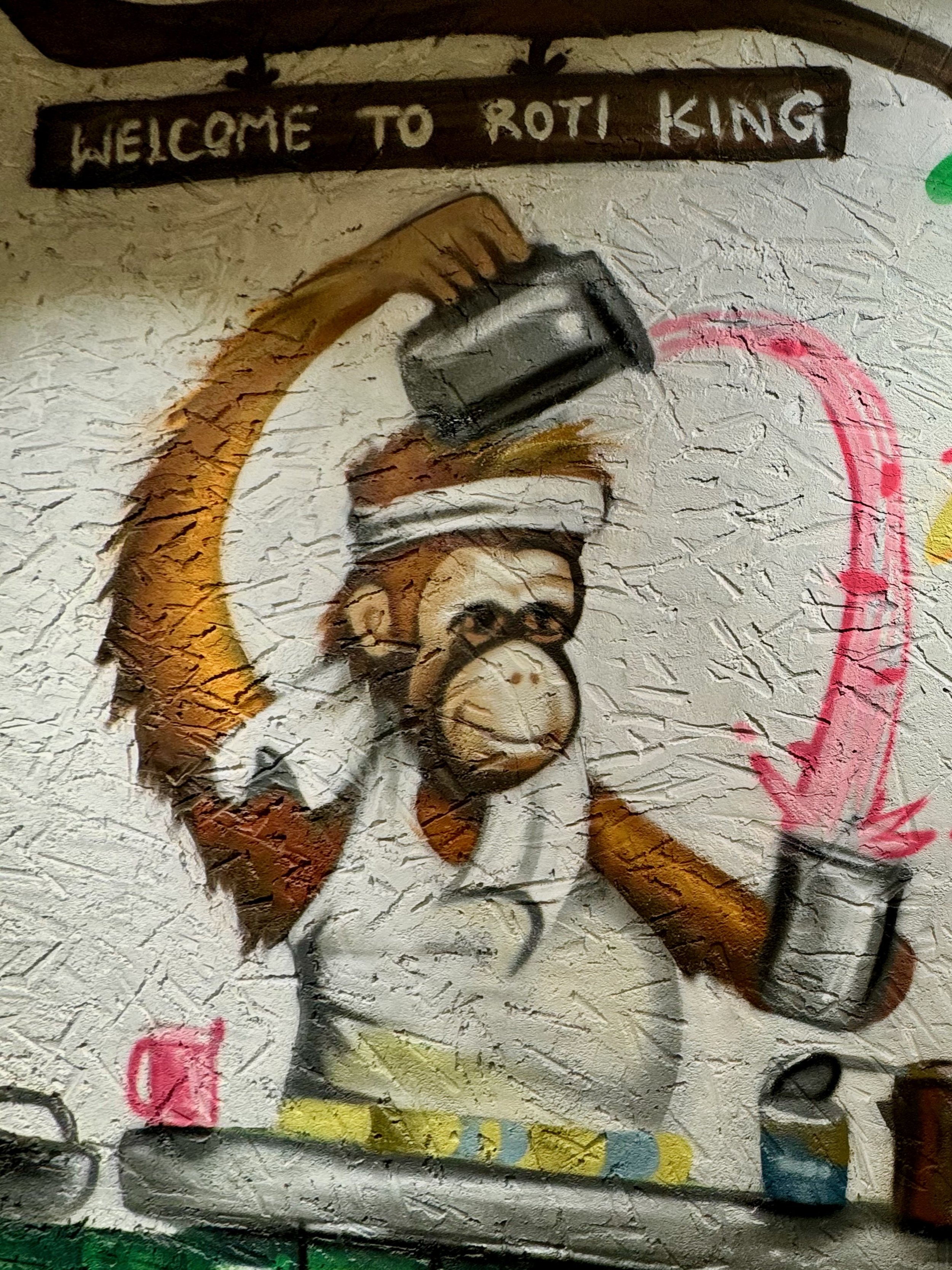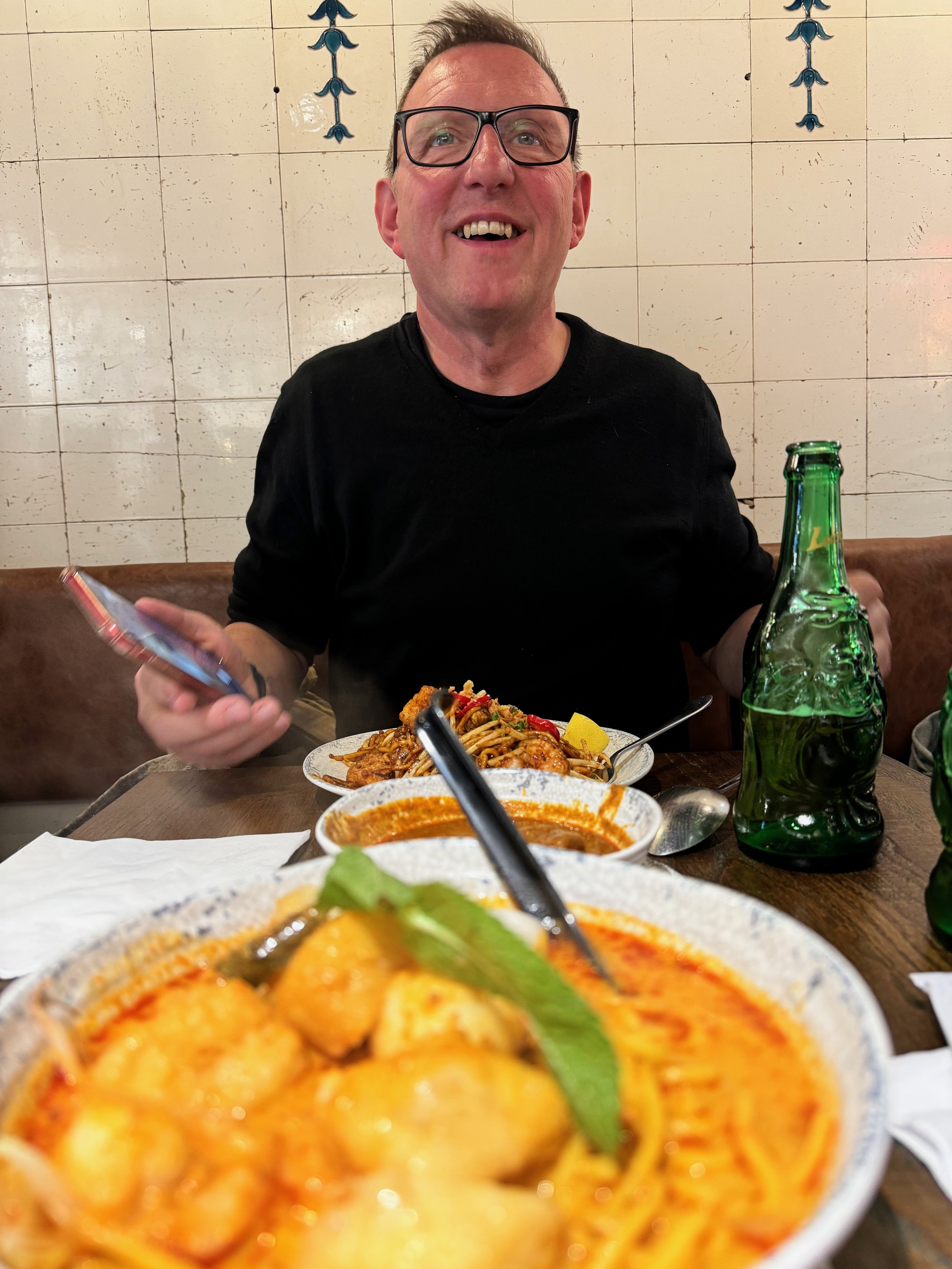Good food in London
What!?
Restaurant reviews now?
What’s it got to do with Martial Arts?
Will this nonsense ever end?
To be fair, the link is tenuous.
But there is a link.
Taiwanese food
Battersea Power Station. Shot with Fujifilm X100T
© Steffan Stringer 2024
Last summer I popped into London to visit the revamped Battersea Power Station. I was spoiled for choice but this one caught my eye - BAO Noodleshop.
I had some Pao Tsai pickles (white mooli, red radishes and something else), smoked chilli cucumber, a Prawn Shia Song bun, and some Dan Dan minced tofu noodles, accompanied by Jasmine tea.
Everything was delicious, but I particularly remember the noodles.
So what’s the connection with martial arts?
Well our founder, Grandmaster Liu, was from Taiwan.
Pulling some text from a colleague’s website…
Our History
In 1966, GrandMaster Liu Yun Qiao, the former head trainer to the bodyguards of the President Chiang Kai Shek, (the Premier of The Republic Of China), retired from his post as Chairman of the Civil Defense Force in the Republic of China (Taiwan). He chose twelve disciples to pass down his skills and named his school Wutan. Most of these disciples were already highly skilled martial artists; some had been teaching in their own right for many years and so brought all their students with them to Wutan. A school with a wealth of experience and knowledge in traditional martial arts was created.
— https://www.bristol-wutan.co.uk/about
I have never been to Taiwan (or China!), but would really love to go someday.
Malaysian Food
Roti King. Shot with Apple iPhone 15 Pro Max
© Steffan Stringer 2024
One of my favourite cuisines is Malaysian, having shared a house with a Malaysian student when I was living in Cardiff after my degree. I learned to cook Malay, Indian and Chinese food.
On another jaunt into London to meet a friend, we chose to eat at the Waterloo branch of Roti King.
I do not remember what I had, but was severely chastised by my partner afterwards for not having rotis! I love rotis, but there was so much else to choose from. I’ll have rotis next time.
For those not familair with Malaysian cuisine, what is it like?…
As a result of historical migrations, colonisation by foreign powers, and its geographical position within its wider home region, Malaysia's culinary style in the present day is primarily a melange of traditions from its Malay, Chinese, Indian, Indonesian, Thai, Filipino and indigenous Bornean and Orang Asli, with light to heavy influences from Arab, Thai, Portuguese, Dutch and British cuisines, to name a few. This resulted in a symphony of flavours, making Malaysian cuisine highly complex and diverse. The condiments, herbs and spices used in cooking vary.
Because Peninsular Malaysia shares a common history with Singapore, it is common to find versions of the same dish across both sides of the border regardless of the place of origin, such as laksa and chicken rice. The same thing can be said with Malaysian Borneo and Brunei, such as ambuyat. Also because of their proximity, historic migration and close ethnic and cultural kinship, Malaysia shares culinary ties with Indonesia, Thailand and the Philippines, as these nations share dishes such as satay and rendang.
— https://en.wikipedia.org/wiki/Malaysian_cuisine
If you are none the wiser, just go! I’ve been to Peninsula Malaysia, Borneo (Sabah and Sarawak) and Brunei a few times and always loved the food there.
I’ve just noticed that there is a Roti King in Battersea Power Station!!!
So have BAO Noodles for lunch and Roti King for dinner?
Happy customer! One of the author’s friends visiting from out of town. Shot on Apple iPhone 15 Pro Max
© Steffan Stringer 2024
So what’s the vague connection with Wutan Martial Arts to Malaysia?
Borrowing once more from Simu Sarer Scotthorne’s website in Bristol…
Grand Master Liu Yun Qiao passed his skills down to many disciples, and many of these masters have spread their knowledge and skill throughout the world. One of Grand Master Liu’s favourite students was Master Wu Song Fa (Ng Choong Fah), who was already a very skilful and proficient martial artist before he was accepted as a student of Grand Master Liu. He trained under strict supervision for six hours a day for many years before Grand Master Liu Yun Qiao finally accredited Master Wu as having mastered the arts of Wutan. With over six decades of Chinese martial arts knowledge, Master Wu developed skills that are rarely found in today’s martial arts circles.
One of Master Wu’s students was Master They…
They Soon Tuan commenced his martial arts tuition with his father before his 7th birthday. From that day on, martial arts became the most important part of his life. He spent at least five hours every day in training learning every technique and system that his crane style master recommended. After teaching on behalf of his teacher for four years in the East, he came to the UK. Having an oriental background, he understands that the reason many instructors cannot enable their students to fulfil their potential even after 20 years of hard training is that they discontinue their own training as soon as they have achieved Black Belt status.
— https://www.bristol-wutan.co.uk/about
Both Master Wu and Master They are from Malaysia.
There.
I did it.
You didn’t think I could do it, did you?
Sadly, I never met Grandmaster Liu or Master Wu who have both now passed away.
Master They is the head of Wutan UK and has lived in Southampton for many years. We are very fortunate to have him here.
Featured image of Battersea Power Station from BAO London website.










